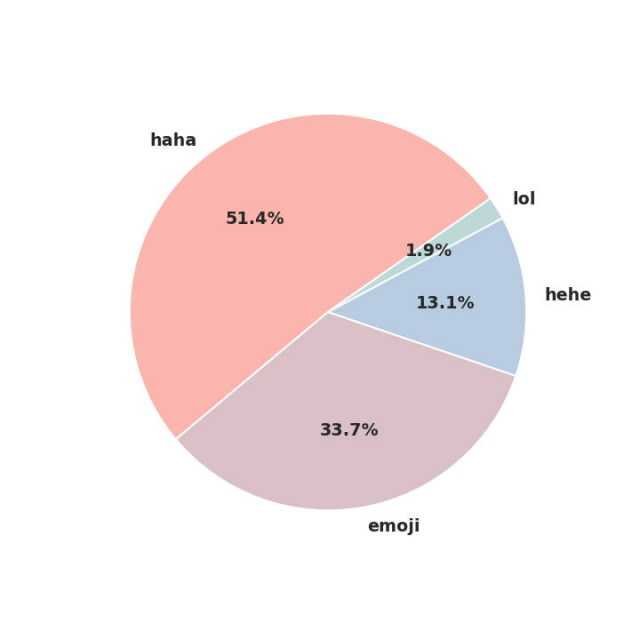Facebook dusts them off data του και μας παρουσιάζει πως γελάμε online. Όταν γελάμε online, υπάρχουν πολλοί τρόποι που το πληκτρολογούμε για να το μεταφέρουμε στον άλλο. Για παράδειγμα, ορισμένοι προτιμούν ένα απλό “lol”, ενώ άλλοι χρησιμοποιούν το παραδοσιακό “HAHAHA.” Υπάρχουν βέβαια και κάποιοι άλλοι που μοιράζονται το γέλιο τους μέ ένα πιο σεμνό “χεχε”. Εξαρτάται πραγματικά από το face located behind the keyboard.
It seems that, according to recent statistics posted by Facebook research team (WIRED), some types of laughter are associated with specific groups of people. 
At study in their study of online laughter, they found that emojis are used more by women to convey laughter than by men.
"Haha" was found to be the most popular way of conveying emotion and that it is used more by men than women.
"Hehe" again ranks very low and once again it is found that it is used more by men although it seems to be used to a limited extent by women.
Surprisingly, "lol" does not seem to be as popular as many might think, and it is found to be the least used way to share laughter.
The research team also found that in Seattle, “haha” was the most popular online way to laugh. In Chicago, however, Emojis have proven to be the dominant method, and "hehe" is used a lot in San Francisco.
Phoenix, on the other hand, was found to use "lol" more than the other cities surveyed.
Another Facebook survey, which continues to analyze data collected by learning human behaviors. And if you do not know why this research needs, Facebook knows.





